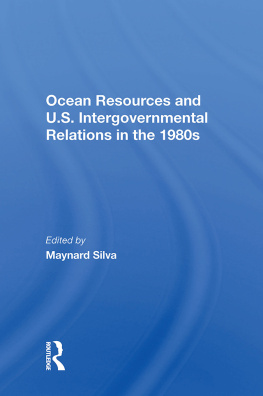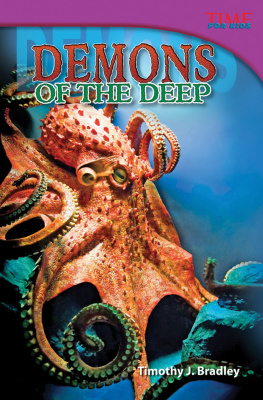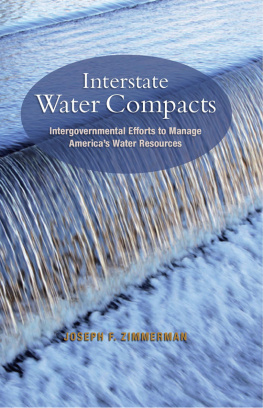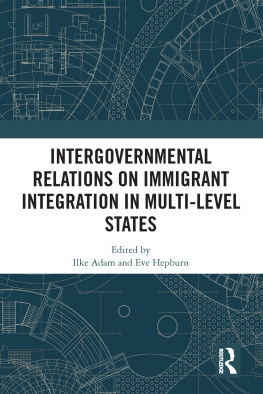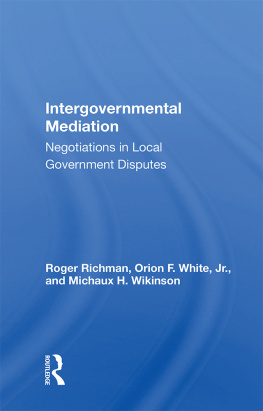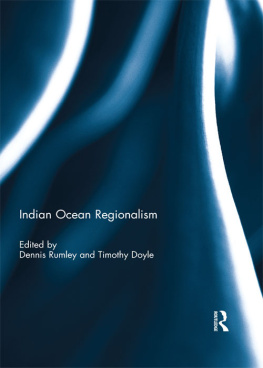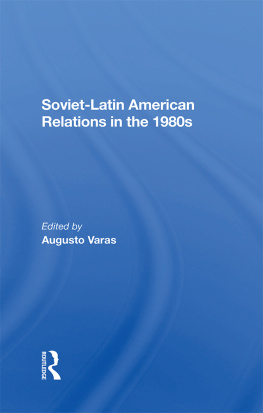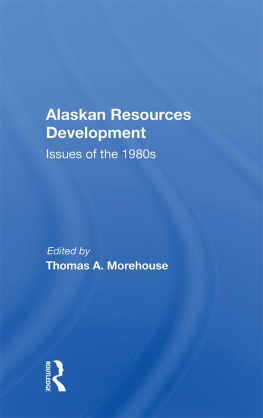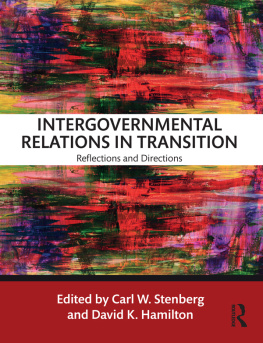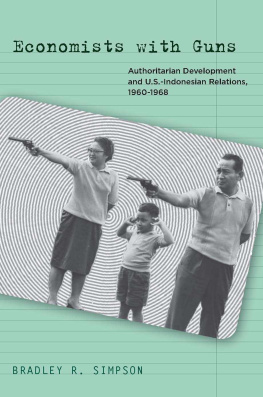Dorotha Bradley - Ocean Resources and U.s. Intergovernmental Relations in the 1980s
Here you can read online Dorotha Bradley - Ocean Resources and U.s. Intergovernmental Relations in the 1980s full text of the book (entire story) in english for free. Download pdf and epub, get meaning, cover and reviews about this ebook. year: 1986, publisher: Westview Press, genre: Politics. Description of the work, (preface) as well as reviews are available. Best literature library LitArk.com created for fans of good reading and offers a wide selection of genres:
Romance novel
Science fiction
Adventure
Detective
Science
History
Home and family
Prose
Art
Politics
Computer
Non-fiction
Religion
Business
Children
Humor
Choose a favorite category and find really read worthwhile books. Enjoy immersion in the world of imagination, feel the emotions of the characters or learn something new for yourself, make an fascinating discovery.
- Book:Ocean Resources and U.s. Intergovernmental Relations in the 1980s
- Author:
- Publisher:Westview Press
- Genre:
- Year:1986
- Rating:4 / 5
- Favourites:Add to favourites
- Your mark:
- 80
- 1
- 2
- 3
- 4
- 5
Ocean Resources and U.s. Intergovernmental Relations in the 1980s: summary, description and annotation
We offer to read an annotation, description, summary or preface (depends on what the author of the book "Ocean Resources and U.s. Intergovernmental Relations in the 1980s" wrote himself). If you haven't found the necessary information about the book — write in the comments, we will try to find it.
Dorotha Bradley: author's other books
Who wrote Ocean Resources and U.s. Intergovernmental Relations in the 1980s? Find out the surname, the name of the author of the book and a list of all author's works by series.
Ocean Resources and U.s. Intergovernmental Relations in the 1980s — read online for free the complete book (whole text) full work
Below is the text of the book, divided by pages. System saving the place of the last page read, allows you to conveniently read the book "Ocean Resources and U.s. Intergovernmental Relations in the 1980s" online for free, without having to search again every time where you left off. Put a bookmark, and you can go to the page where you finished reading at any time.
Font size:
Interval:
Bookmark:

605 Third Avenue, New York, NY 10017
2 Park Square, Milton Park, Abingdon, Oxon OX14 4RN
Product or corporate names may be trademarks or registered trademarks, and are used only for identification and explanation without intent to infringe.
ISBN 13: 978-0-3671-5863-7 (pbk)
- 2 How Federalism Matters in Natural Resources Policy
- 3 Ocean Resources and Intergovernmental Relations: The Record to 1980
- 4 Intergovernmental Relations in Marine Fisheries Management
- 5 Marine Mammals, Endangered Species, and Intergovernmental Relations
- 6 Ocean Resources and Intergovernmental Relations in the 1980s: Outer Continental Shelf Hydrocarbons and Minerals
- 7 Intergovernmental Relations and Marine Policy Change: Ocean Dumping and At-Sea Incineration of Hazardous Waste
- 8 Building a Federal-State Partnership for U.S. Ocean Resource Management
- 9 Ocean Resources and Intergovernmental Relations: An Analysis of the Patterns
- 10 The Exclusive Economic Zone: A New Opportunity in Federal-State Ocean Relations
Font size:
Interval:
Bookmark:
Similar books «Ocean Resources and U.s. Intergovernmental Relations in the 1980s»
Look at similar books to Ocean Resources and U.s. Intergovernmental Relations in the 1980s. We have selected literature similar in name and meaning in the hope of providing readers with more options to find new, interesting, not yet read works.
Discussion, reviews of the book Ocean Resources and U.s. Intergovernmental Relations in the 1980s and just readers' own opinions. Leave your comments, write what you think about the work, its meaning or the main characters. Specify what exactly you liked and what you didn't like, and why you think so.

